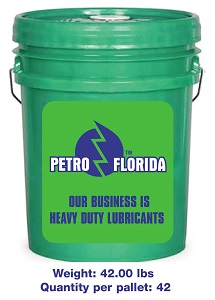Description
HVAC Propylene Glycol
PROPYLENE GLYCOL SUPERVISOR
• The system is not guaranteed to be ruptured.
Aggregate state in the non-operating state at low temperatures is liquid (mushy). The volume during freezing increases by only 0.1% (heat transfer agent for ethylene glycol – about 1.5%). To merge the system in winter time is not required.
• Unlike water, the water-glycol solution and, accordingly, the coolant freeze gradually. Even at the cooling stage, crystals form in the liquid. Then, with further cooling of the liquid, the crystals become more and more in it (a so-called sludge is formed), and finally, at a certain lower final temperature, this sludge solidifies.
• Propylene glycol coolant is practically the only product of such purpose, when with complete evaporation of water from the coolant composition and subsequent cooling, propylene glycol does not freeze to -60 ° C (ethylene glycol, recall, freezes at -13 ° C, glycerin at + 17 ° C).
• Environmentally and toxicologically safe.
• Provides the highest safety level after water. Its performance is several times greater than the ethylene glycol coolant. The toxicity of ethylene glycol LD50 is 4,700 mg / kg. The toxicity of propylene glycol LD 50 is 20 000-30 000 mg / kg.
• Vapors are not dangerous even if inhaled for a long time. Does not cause acute poisoning with accidental ingestion (ingestion). Also remains safe in case of contact with eyes or skin.
• When a spill is not required, it is not necessary to replace the floor, tile, insulation, just collect the coolant with rags, sawdust, sand, a wet rag, and rinse the surface with water.
• Non-corrosive. It is combined with all structural materials of the systems.
• Good thermophysical properties. The room heats up quickly and evenly, the heat is held longer.
• Based on bactericidal and sterilizing properties.
• Despite the viscosity, the heat transfer medium based on propylene glycol has a lubricating effect, which reduces the hydrodynamic resistance and improves the operating conditions of pumps in the secondary circuit.
• Scale does not form.
• Propylene glycol helps to remove deposits from the internal surfaces of heat exchange equipment, thus saving costs for repair work or additional maintenance.
• The heat transfer medium based on propylene glycol has a lower density in comparison with ethylene glycol coolants and, due to this, less energy consumption for pumping the coolant.

